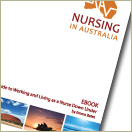|
LPN to MSN – Path of AdvancementLPN to MSN: Licensed practical nurses, or LPNs, play many vital roles in every part of the health care industry. Even so, it’s one of the lowest nursing positions available, with less pay and fewer responsibilities than RNs, BSNs, or MSNs. For those looking to advance professionally and take on greater responsibility as a nurse, a Master of Science in Nursing or MSN may be a worthwhile avenue to pursue. LPN vs. MSN – A Difference in Schooling, Responsibility & Salary LPNs and MSNs can be found in the same working environments, including hospitals and medical centers, but they have different roles and vastly different training and salaries. LPN training programs are usually one to two years, and prepare nurses to meet a wide range of patients’ daily needs – everything from helping disabled patients eat and clothe themselves to changing linens or helping file doctors' paperwork. LPNs earn a median salary of $39,030, according to Bureau of Labor Statistics figures for 2008.
MSNs train for six to ten years, completing either a Bachelor of Science in Nursing (BSN) or Registered Nurse (RN) certification before entering a Master's program. A nurse with a Master's degree can expect to earn substantially more than an LPN, although the exact amount will depend on the nurse's specialty and the type of nursing field in which he or she works. The Bureau of Labor Statistics states that MSNs employed as medical and health services managers earned an average of $73,340 annually in 2006.
LPN to MSN Part One: Getting a BSN Degree or RN Certification There is no direct path to shortcut the route from LPN to MSN, but there are programs that "bridge" some of the steps along the way. In order to qualify for most Masters of Science in Nursing programs, a prior Bachelor of Science in Nursing is required. Others allow entry for nurses who have RN training and certification, even if they have not completed a BSN. Whatever type of MSN program you choose, it's almost certain that one of these will be required as a prerequisite. Bridge programs are available to expedite the step from LPN to RN or BSN. Instead of a full three- or four-year degree program, these LPN to RN (or LPN to BSN) programs can be completed online at the student's own pace based on prior training and experience – usually much quicker than pursuing a BSN from the beginning.
BSN to MSN (or RN to MSN) Programs Once the BSN or RN is achieved, there are special MSN programs that offer entry to nurses with either a prior BSN or RN. RN to MSN bridge programs, in particular, convey fundamental concepts and training in a rigorous but accelerated format, allowing nurses without a prior Bachelor's degree to achieve their Master's in a manageable amount of time. Other programs are available that offer MSN degrees combined with a joint Masters in Public Health (MPH), Masters of Business (MBA), or Masters in Health Admininistration (MSHA). Many of these programs are available online.
Importance of Ongoing Training/Refreshers Nurses are responsible for providing many levels of care to patients in hospitals, health centers, and doctors' private practices. Comprising the largest segment of health care practitioners, nurses provide many vital services, including prepping patients for surgery, helping people eat or take their medication, monitoring vital signs, and evaluating response to treatment. With such crucial roles in health care, nurses must stay on top of changing technologies and constantly hone their skills, which is why it’s so important for them to engage in ongoing training or continuing education.
Continuing Education Requirements for Nurses Most nursing boards across the United States require that nurses complete a minimum number of continuing education (CE) credits or continuing education units (CEU) each time they’re recertified to work as an RN or LPN. These CE requirements range from 8 hours to as much as 45 hours per renewal period – every one to three years, depending on the state. Continuing education requirements can be met by conferences, workshops, online learning programs, and even certain DVD training modules. The subjects range from refreshers of LPN or RN training to workshops offering new information on cutting-edge drugs, treatments, and patient care methodologies. Summary There are seemingly endless ways to advance your career in the health care field. Consider a health care management online degree and start moving up the health care ladder today. Other career path considerations: Return to the home page for more on LPN to MSN and LPN opportunities. |



